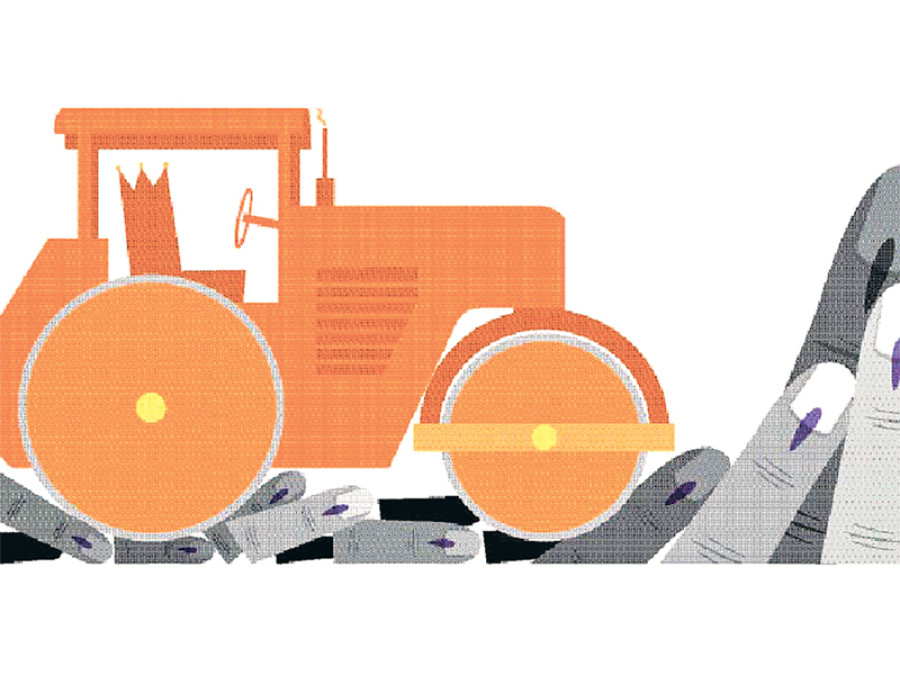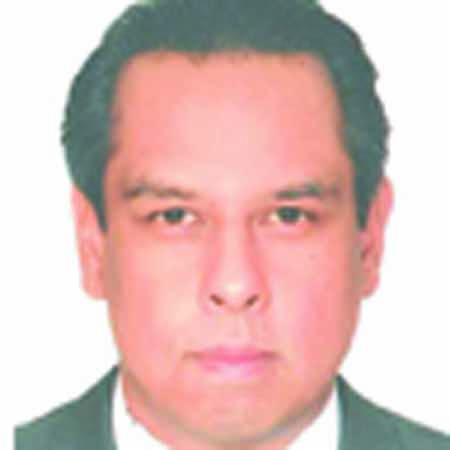Opinion
System upgrade
It seems the three democratic political awakenings Nepal witnessed just provided an illusion of democracy; good governance, accountability, and participatory democracy have been largely missing
Bimal Pratap Shah
It is an irony that Nepal somehow ended up as an impoverished nation, even though the country always had the potential to harness tourism-related economic benefits and prosper like Switzerland. That said, an economic miracle is still not far, provided three things are upgraded with fanatical zeal: Democracy, the way the Ministry of Finance measures the country’s economic health, and most importantly, the way political parties function.
More than votes
First, there is no question that the country’s so-called dysfunctional democracy has to be upgraded just like we regularly upgrade the operating systems (OS) of our internet-enabled devices. The process of upgrading, even though quite cumbersome and at times awefully irritating, is necessary to enhance the OS’s security and overall performance. A device with an outdated OS will fail to function properly. Likewise, the forms of government (the OS of a country), if not upgraded, will ultimately end up becoming dysfunctional.
True democracy is not just about people casting votes every four or five years in elections tainted with accusations of rigged voting and intimidation, but about people being fully involved
in governance, including the formulation of laws. Nepal’s democratic system is incapable of solving the country’s complex problems like the ongoing
economic crisis, rising inequality, dysfunctional government, pollution, overpopulation, ecological crisis, brain drain, and resource mismanagement, to name a few.
It seems the three democratic political awakenings Nepal witnessed just provided an illusion of democracy; good governance, accountability, and participatory democracy have been largely missing. As a result, the concept of democracy is still confined to political manifestos, rhetoric, and books. Therefore, there is a need to fine-tune democracy so that it promotes decentralisation of power, inclusion, and diversity.
Not only money
Second, the Ministry of Finance has to stop using Gross Dosmestic Product (GDP) as the first and foremost parameter to measure Nepal’s economic health. The concept of GDP dates back to the 1930s and is often regarded as a misleading tool to measure a nation’s success. The importance given to GDP did not draw criticism for a long time because previosuly environmental and social concerns were not so serious. However, with growing ecological crises and inequality around the world, the concept of GDP has been questioned by many world leaders, policy makers, advocates, and economists.
The UN Secretary General Ban Ki Moon recently said, “GDP fails to take into account the social and environmental costs of the so-called progress…We need a new economic paradigm that recognises the parity between the three pillars of sustainable development: social, economic, and environmental well-being.” Likewise, Joseph E. Stiglitz, a recipient of the Nobel Memorial Prize in Economic Sciences recently said, “GDP is not a good measure of economic performance; it is not a good measure of well-being.’’ Both are implying that governments need to ensure economic progress that goes hand in hand with human and ecological well-being.
On that note, the next Finance Minister of Nepal should be able to think beyond the GDP framework and reform economic policies, mainly because many countries, including China, no longer consider GDP as a barometer of success. More than 70 Chinese cities have already abandoned GDP as an economic policy tool—a radical departure from the Communist party’s tradition of maximising GDP growth. Nepal has to think in that line as well.
Someone who would fit the requirement of the next Finance Minister is Swarnim Wagle, a Harvard trained economist and former member of the National Planning Commission (NPC) known for his out-of-the-box thinking. While at the NPC, he made numerous praiseworthy contributions: Drafting the concept note and initiation of the preparation of ‘Vision 2030 for Nepal’, co-leading the preparation of the Post-Disaster Needs Assessment, and organising the successful International Conference on Nepal’s Reconstruction.
Deep-rooted corruption
Third, the political parties have to stop siphoning off the country’s resources allocated for public purposes to finance the political machinery. This has been the main factor contributing to the nation’s sustained misery. In a dysfunctional country like Nepal, there is a direct link between political and economic power, or where access to political power ensures access to economic privileges. Therefore, the main reason for many people to enter politics is not to serve the country, but to amass wealth. In developed nations, people choose the business route if they wish to be rich. The large scale corruption promoted by the political parties has to be rooted out if Nepal is to prosper. For now, citizens have to make sure that the $4.4 billion aid the donors pledged for post-earthquake reconstruction does not end up where it is not supposed to.
Despite the promises, Nepal is still a least developed country where more than half of the population is illiterate, industrial-scale corruption is pervasive, and a large number of youths leave abroad on a daily basis. The only beneficiaries of democracy or ‘new Nepal’ till now have been the big political parties. The fact that Nepal has slipped four places down from 126th position last year to 130th position this year in the Transparency International‘s “Corruption Perception Index 2015” further proves that this trend is still prevalent. This is deeply troubling.
Nepali citizens are tired of a fake democracy that does not benefit the common people.Therefore, if the political parties fail to upgrade their modus operandi and prescribe authentic democracy by implementing policies as demanded by the populace, they can be certain that the next generation will read about them only in history books. Time to perfect democracy. Time for a system upgrade!
Shah is the co-author of ‘Strategic IT Planning for Public Organisations: A Toolkit’ published by the UN in 2009




 12.58°C Kathmandu
12.58°C Kathmandu










